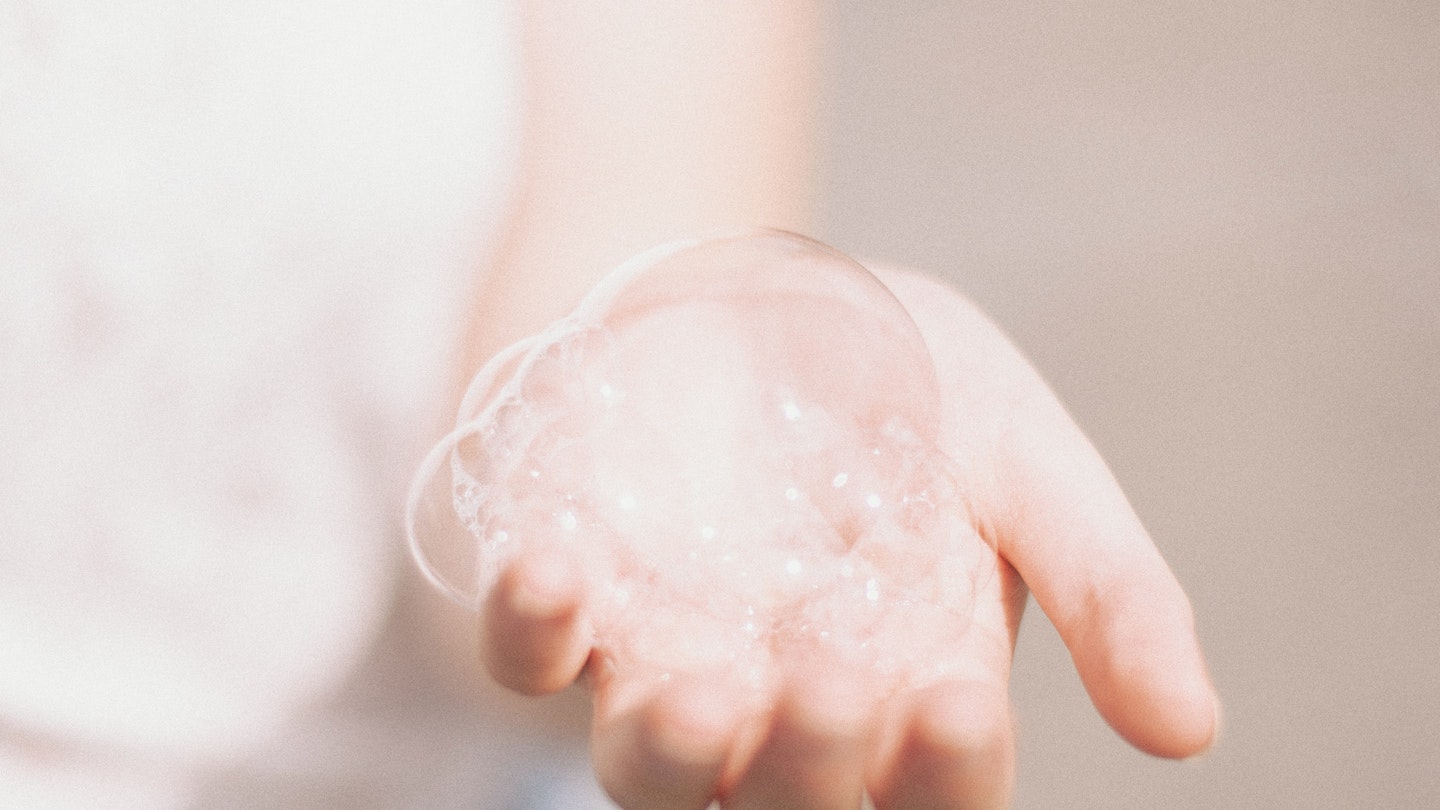Shampoos play a vital role in maintaining a head of healthy hair. They cleanse and clarify our roots, removing product buildup and grease, whilst locking in moisture and bolstering shine. Whether your hair is fine, thick or curly – there are so many different formulations and types of shampoos available on the market. And one formula requirement, that’s gained a lot of traction in recent years with the movement towards ‘clean’ beauty, is ‘sulphate-free’ shampoo.
Hair legend and UK Editorial Ambassador for L’Oréal Professionnel, Adam Reed reports a noticeable increase in clients asking about natural options when it comes to shampoo. But are chemicals like sulphates really that bad and should we be avoiding them? We’ve spoken to the industry experts to get to the (ahem) root cause of the issue…
What exactly is a sulphate?
Sulphates are a chemical agent used in haircare products that help mix shampoo with water to create that luxurious lather we’re all too familiar with when washing our hair. ‘They are great surfactants,’ states Reed, ‘which means they attract both oil and water.’ While one molecule attracts the unwanted oil particles in our hair, another molecule clings to the water. ‘Therefore, when you rinse off the shampoo, the grease is washed away with the water to give that super clean, fresh feeling.’
‘There are many kinds of sulphates used in shampoos,’ explains Reed, ‘the most commonly used are sodium lauryl sulfate (SLS) and sodium laureth sulfate (SLES), which are produced from petroleum and plant oils.’
Are sulphates bad for our hair?
‘The purpose of sulphates in shampoo is to clean and dissolve grease whilst providing a pleasant foaming sensation that can easily be rinsed,’ explains renowned Hairdresser, Michael Van Clarke. Recently, however, sulphates have received a bad rap. The reason being, as Valerie Maine, Owner of Live True London for Redken & Pureology explains, is that sulphates can remove too much of the natural oils on the hair and scalp leading to dryness and irritation.
Sulphates can also affect coloured hair. ‘If hair is washed frequently with a sulphate containing shampoo, the hair colour will fade faster,’ says Maine. ‘This is because sulphates work to open the hair cuticle, which when opened, allow the colour to escape quicker. Sulphates can also affect the hair’s natural proteins which means weaker hair as well as colour that fades quickly.’
The sulphate scale:
Van Clarke breaks down the common sulphates found in shampoos that can also be derived from coconut oil...
SLS – Sodium Lauryl Sulphate can be seen either as the harshest or most effective degreaser and creates lots of foam. It also has the smallest molecular structure. This could be unnecessarily harsh on dry hair or sensitive scalps.
SLES – Sodium Laureth Sulphate is a much gentler cleanser and has a larger molecular structure.
ALS – Ammonium Lauryl Sulphate is gentler still and has the larger more complex molecule which is harder for outer layers of skin to absorb so is seen as far less likely to irritate sensitive skin.
SLMI - Sodium Lauroyl Methyl Isethionate is also derived from coconut oil, is sulphate-free and considered one of the mildest surfactants (cleansers) on the market.
Should we be investing in sulphate-free shampoos?
‘I wouldn’t necessarily say that going sulphate-free in the shampoo department is for everyone,’ says Reed, ‘but there are benefits for certain hair-types.’
‘Sulphate-free shampoos tend to leave a little more of the hair’s natural oils behind after washing so this can be great for hair that is prone to being rather dry. Coloured hair will also respond well to a sulphate-free shampoo.’ Reed recommends the L’Oréal Professionnel Vitamino Colour Shampoo, £13.40, as it still cleanses the hair but prevents colour fade and dehydration to keep the colour looking great.
If you do want to go sulphate-free in the hair department look out for shampoos containing naturally-derived cleansers like coconut oil.
Shop our curated edit of sulphate-free shampoos here:
Best Sulphate-Free Shampoos
 1 of 4
1 of 4L'Oréal Professionnel Source Essentielle Daily Shampoo, £18.90
L'Oréal Professionnel Source Essentielle shampoos are made with up to 99% naturally derived ingredients and are sulfate free. There are three shampoos in the collection depending on hair type and they are infused with gorgeous ingredients like Aloe Vera and Jasmine Oil.
 2 of 4
2 of 4Michael Van Clarke Cashmere Protein Moisturising Shampoo, £19
Michael Van Clarke 3 More Inches Cashmere Protein Shampoo draws from a range of different naturally derived cleansers and are all SLS free.
 3 of 4
3 of 4Redken Nature + Science All Soft Shampoo, £18.50
Free from sulphates, silicones and parabens, this gentle shampoo boosts shine whilst deeply nourishing strands.
 4 of 4
4 of 4Pureology Hydrate Colour Care Shampoo, £19.95
This organic, moisturising shampoo is specifically formulated for colour treated hair and uses a mild ZeroSulfate to cleanse without stripping hair colour.
READ MORE: Beauty Lingo Decoded: What Is A Paraben-Free Product And Should We Be Using Them?
